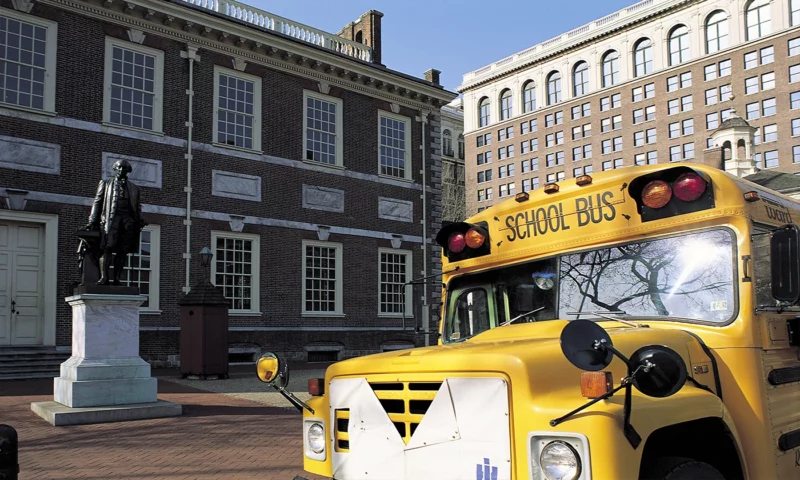How Philadelphia Disrupted the School-to-Prison Pipeline
Share
Explore Our Galleries
Breaking News!
Today's news and culture by Black and other reporters in the Black and mainstream media.
Ways to Support ABHM?
By Amanda Nemoyer & Naomi Goldstein, YES! Magazine
Research on a police diversion program implemented in 2014 shows a striking 91% reduction in in-school arrests over less than 10 years.

(Sylvain Grandadam/Gamma-Rapho via Getty Images)
School-based arrests are one part of the school-to-prison pipeline, through which students—especially Black and Latine students and those with disabilities—are pushed out of their schools and into the legal system.
Getting caught up in the legal system has been linked to negative health, social, and academic outcomes, as well as increased risk for future arrest.
Given these negative consequences, public agencies in states like Connecticut, New York, and Pennsylvania have looked for ways to arrest fewer young people in schools. Philadelphia, in particular, has pioneered a successful effort to divert youth from the legal system.
In Philadelphia, police department leaders recognized that the city’s school district was its largest source of referrals for youth arrests. To address this issue, then–Deputy Police Commissioner Kevin Bethel developed and implemented a school-based, pre-arrest diversion initiative in partnership with the school district and the city’s department of human services. The program is called the Philadelphia Police School Diversion Program, and it officially launched in May 2014.
Learn how the program works and its effects on schools, students, and city costs.
Further implementation of programs like Philadelphia’s may help to prevent cases like this.
Back to Breaking News.









Comments Are Welcome
Note: We moderate submissions in order to create a space for meaningful dialogue, a space where museum visitors – adults and youth –– can exchange informed, thoughtful, and relevant comments that add value to our exhibits.
Racial slurs, personal attacks, obscenity, profanity, and SHOUTING do not meet the above standard. Such comments are posted in the exhibit Hateful Speech. Commercial promotions, impersonations, and incoherent comments likewise fail to meet our goals, so will not be posted. Submissions longer than 120 words will be shortened.
See our full Comments Policy here.